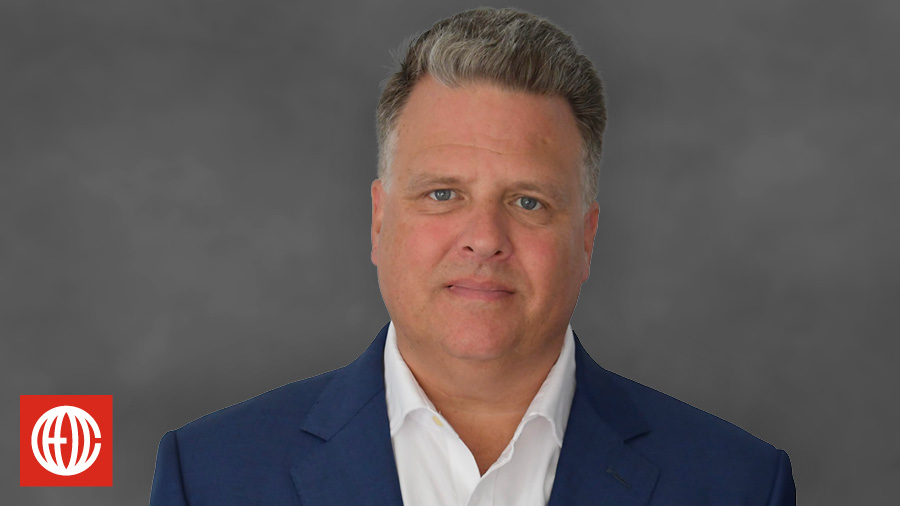
Many CEOs headed into 2023 thinking this could be the year we finally “return to normal.” The pandemic was in the rearview mirror. Offices were reopening. By most measures, the economy was on the rebound. The war in Ukraine was a known variable. Election-year chaos could wait for next year’s annual planning session.
Instead, we might remember 2023 as the year we buried “back to normal” for good. ChatGPT and other AI tech went mainstream, re-disrupting an already disrupted workforce. Return-to-office mandates sent top talent out the door. The nonstop election cycle kept churning out new political and culture debates and cancellations. The invincible tech and entertainment sectors stumbled as a decade of free money gave way to high-interest rates and, at some firms, even higher ego. A pop star created her own billion-dollar global economy. More wars erupted in the Middle East and Africa. And the higher cost of everything caused businesses and their customers to reevaluate how and why they spend.
If the new normal of business is a state of constant flux, then solid leadership will continue to be the difference between firms that can’t keep pace with change and those that Make BIG Happen, no matter what.
As you prepare to make the coming year your best yet, think about these 10 time-tested leadership insights from our 2023 CEO Coaching International Podcasts. And if you want to stay ahead of the curve in 2024, click on your favorite podcast platform below to subscribe.
1. Culture doesn’t just happen — you need a system to build it.
How TaskUs Used a “System Builder” Approach to Drive Nearly $1 Billion in Sales with Chief Customer Officer Jarrod Johnson
“We have a phenomenal learning management system where we have built computer-based training modules and digital assets: case studies, Salesforce tutorials, sales methodology, the forecasting system. And then we test against that. Some are just pass/fail. But our sales enablement team has done a really nice job giving us an onboarding plan that works. It takes a lot of effort, but it makes a huge difference when you get over a couple of managers. Otherwise, you get too much inconsistency. We do a lot of dry runs. We have a culture of continuous self-improvement, so we thrive on feedback. We do quarterly performance appraisals, quarterly rating systems, and employees are allowed and encouraged to give their managers feedback.”
2. Track, measure, and manage the numbers that matter the most.
Identifying the Key Metrics That Drive BIG Growth with Rick Kimball, a coach at CEO Coaching International
When Rick was running the healthcare investment banking division at Goldman Sachs, one leading activity was the number of face-to-face meetings bankers had with clients. To develop KPIs around those meetings that he could track, measure, and manage, Rick integrated a new CRM system into the company’s email and calendar servers. That way, every time a banker or their assistant scheduled a meeting, it was automatically logged in the CRM system. Then, Rick told his bankers, “You ought to take notes because you’re going to find it useful for yourself to go back to those notes and review them. But I don’t care about the notes as much as I care about tracking face-to-face meetings. I really didn’t need them to put a whole lot of data into the system. I simply needed the face-to-face meetings to be tracked.”
3. Manage your mind.
Women Leadership: What is Your Secret Sauce? with Erika Royal, CEO of The Life Coach School, known for setting the standard for the life coaching industry by inspiring people to invest in and care for their mental health.
“I think that my superpower is that I learned to manage my mind. For a very long time, when I was an associate and then a partner at a law firm, the level of competition caused me a lot of anxiety. Trying to be a mother and a lawyer and all those things. And it wasn’t until I worked with a coach and really learned how to manage my own mind that I was able to take on more opportunities to step into leadership a little bit more. So I think that, in terms of being a leader, the most important thing for me is being able to manage my own mind before I try to manage other people and influence other people.”
4. Identify, analyze, and appreciate differences in team members.
Women Leadership: What is Your Secret Sauce? with Kirsten Dermer, CEO of Spohn Ranch, an award-winning skateboard park design-build firm with projects in 15 countries around the world.
“We have done a really good job of building a culture of mutual respect and admiration. And I have really focused on everyone in the company as an individual, to foster a culture of mutual appreciation and understanding. Going through the various types of personality tests gives each person a deeper understanding of themselves and their own motivations, but it also gives them an appreciation for the differences among the team and how we all come together and create a whole picture as opposed to a bunch of robots that all are exactly the same. And then from there, focusing on really developing and empowering, educating, creating kind of a custom development plan for each person that makes the most sense based on where they’re starting from.”
5. Seize opportunity.
Women Leadership: What is Your Secret Sauce? with Alex Loback, President of Darcoid, a provider of high-performance seals found in critical products ranging from Aerospace (including Space X) to high-performance vehicles.
“I’m in a family business. I stepped into this business in my mid-twenties. My dad and I worked out a multi-year succession plan and the pandemic really accelerated that by a couple of years. This really unique opportunity gave me the chance to really show myself and everybody, ‘Hey, this is what I’m good at.’ So if you are in a family business, it’s okay if the next generation hasn’t really shown you what they’ve got because maybe that scenario hasn’t presented itself yet. So keep trying. Do new things. Put yourself or put your kid in an environment to try something new to just kind of see what they’ve got, because I was afforded that and it was instrumental in me developing confidence and really stepping into this leadership role.”
6. Find a coach who can help you pay down “ignorance debt” faster.
Growing from Scrappy Entrepreneur to Leader of a BIG Business with Ryan Iwamoto, President and Co-Founder of 24 Hour Home Care.
“I think there’s a reason why a lot of entrepreneurs get to a certain point where, as the company starts to scale, the entrepreneurs aren’t going on with that second chapter of the journey. The biggest change for me is taking a step back and understanding that the same skillsets that got you from $0 to $10 million are not going to be the same skillsets that get you from $10 to $40 to $100 million. I would really tout finding someone that can get me out of my comfort zone and hold me accountable. And I found that in Sheldon Harris of CEO Coaching International. I think the biggest cost to a business or you personally is what you don’t know. You carry this ‘ignorance debt,’ and if you can get a coach that can help you pay that ignorance debt down faster you’re going to accelerate faster and reach your goal faster.”
7. Treat your people like the whole world is watching.
The Enduring Principles of Great Leadership with Professor Rosabeth Moss Kanter, who holds the Ernest L. Arbuckle Professorship at Harvard Business School.
“Leadership is not entirely about inspiration. But you don’t have to be brutal about it. And there are better ways to treat people. It’s not only your colleagues at the moment who are watching, but all the people who might work for the company are watching you, and then anybody laid off is being watched for how they were treated. My leadership lessons through all the years I’ve been active have to do with empowering people, treating them with dignity and respect, listening to their ideas. Early in my career, when I was just a young woman and I was talking about these principles, some big companies were not yet prepared for this because they were still thinking about Jack Welch-style efficiencies. Later, I would hear from some of the same people I had spoken to or consulted with who said, ‘You were really right. That’s what we’re all about now.’”
8. If you want to grow sales, build stronger relationships.
How to Make the Leap from Top Salesperson to Great Sales Leader with Christian Stang, Vice President of Business Development at GINCOR Werx, a leading company in the custom manufacturing of vocational vehicles.
“Sales isabout building relationships and making sure that we can build stuff that’s long-lasting for clients. A lot of our products have long cycle times and we’ve always focused on the long term rather than the short term. We’ll often make decisions that will allow us to win five years from now maybe more so than five minutes from now. We always want to do right by the clients. So if we approach sales with a relationship in mind and we always treat people the way they want to be treated, then it always comes back to us whether we want to continue that relationship or not. And I think clients really appreciate that because they see it.“
9. Develop an annual strategic plan with your CEO coach.
Using For Profit Business Principles To Rapidly Grow a Nonprofit and Make a BIG Impact with Mark Miller, CEO of Connective, a community-based social services nonprofit operating in British Columbia and the Yukon to create safe, healthy, and inclusive communities for all.
“Our strategic plan is pretty simple: serve more people, engage, create partnerships, be innovative, and sustain that. Find ways to ensure that we’re sustainable and to ensure that we’re able to deliver those services for a long period of time. Making the decision to invest in coaching really ramped up our planning process. We always had, I think, a good plan. But the repetitive cycle and the repetitive planning process and the impact that our coach has had on that is huge for us. Regular planning and regular check-ins are just ingrained in our organization. It’s part of our meetings and we’re very aware at any given moment where we’re at. So I think that just enabled us to move forward.”
10. It’s not the tools, it’s how you use them.
Applying “7 Rules of Power” to CEO Leadership with Jeffrey Pfeffer, the Thomas D. Dee II Professor of Organizational Behavior at the Graduate School of Business, Stanford University.
“I assume everybody thinks they’re a good person. I think one of the things that has caused the problems that you see in the world is that power goes to the people who are willing to learn and use what it takes to become successful. I don’t think there’s anything unethical with any of the 7 Rules of Power: getting out of your own way, or breaking the rules, or showing up in a powerful fashion, or building a powerful brand, or networking relentlessly, or using your power, or having self-descriptions of yourself that empower rather than disempower you. I don’t think any of those things are unethical. But I think people sometimes say, ‘This is a game that I don’t want to play.’ And if you opt out, not everybody’s going to opt out.“
About CEO Coaching International
CEO Coaching International works with CEOs and their leadership teams to achieve extraordinary results quarter after quarter, year after year. Known globally for its success in coaching growth-focused entrepreneurs to meaningful exits, CEO Coaching International has coached more than 1,000 CEOs and entrepreneurs in more than 60 countries and 45 industries. The coaches at CEO Coaching International are former CEOs, presidents, or executives who have made BIG happen. The firm’s coaches have led double-digit sales and profit growth in businesses ranging in size from startups to over $10 billion, and many are founders that have led their companies through successful eight, nine, and ten-figure exits. Companies working with CEO Coaching International for two years or more have experienced an average revenue CAGR of 31% (2.6X the U.S. average) and an average EBITDA CAGR of 52.3% (more than 5X the U.S. average).
Learn more about executive coaching | Meet our world-class coaches









